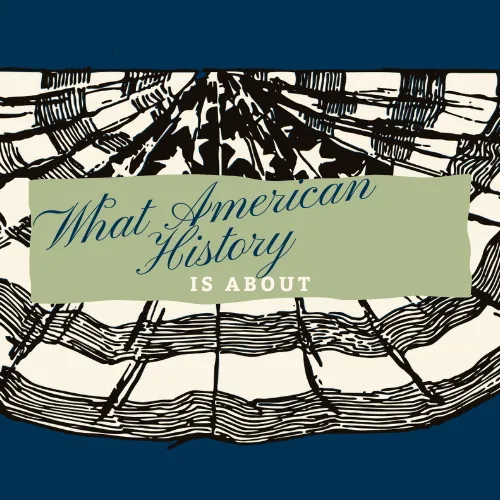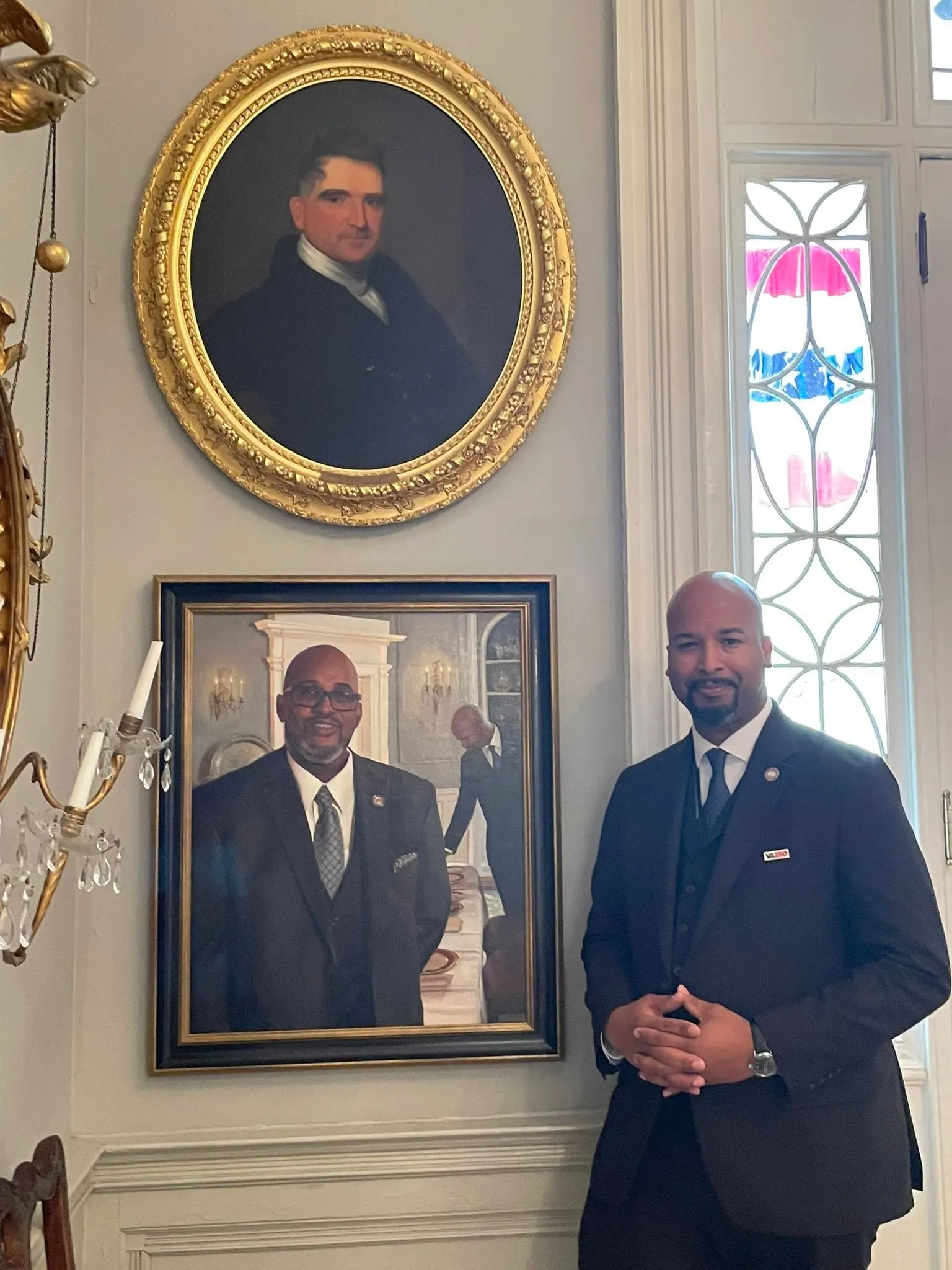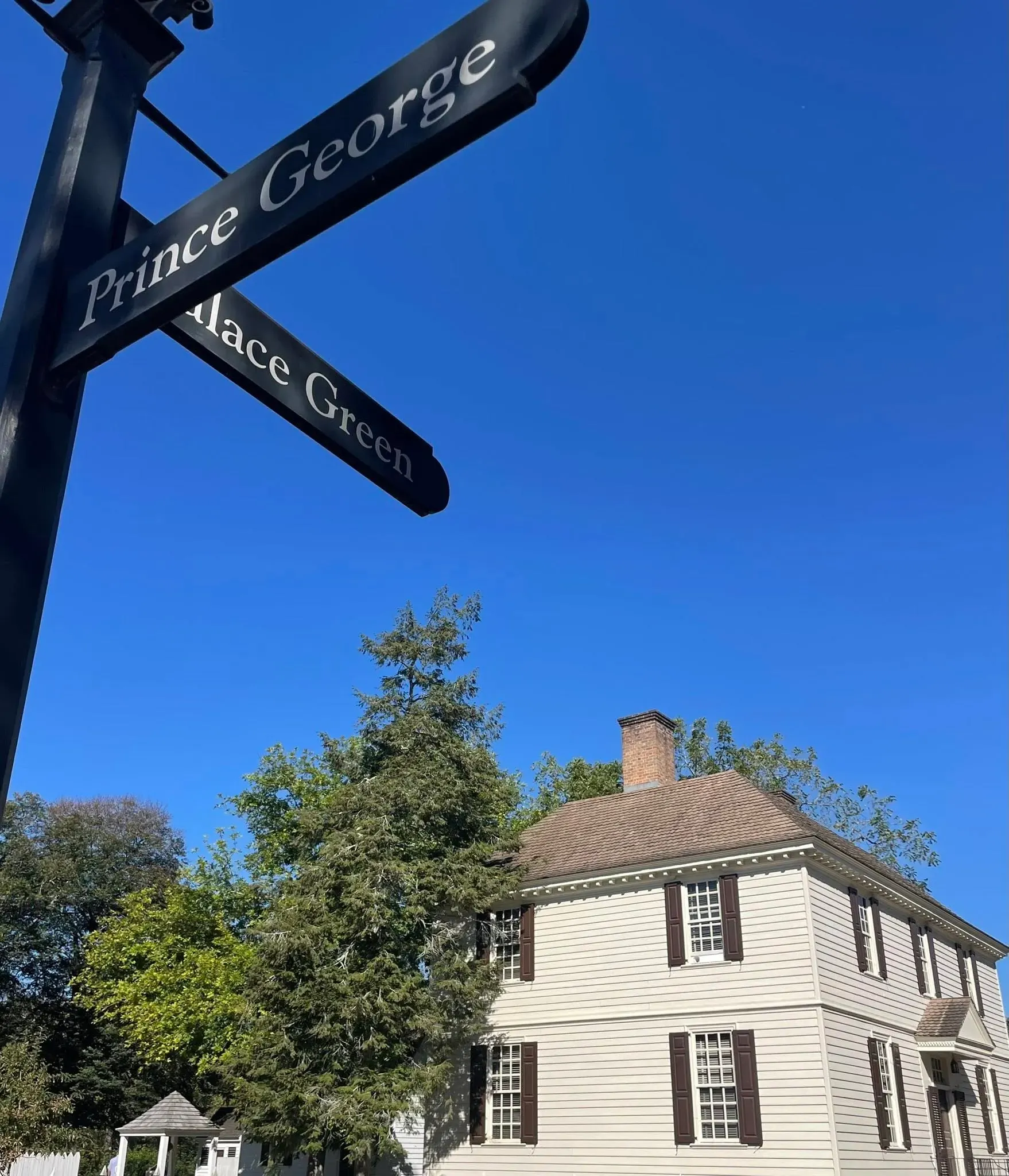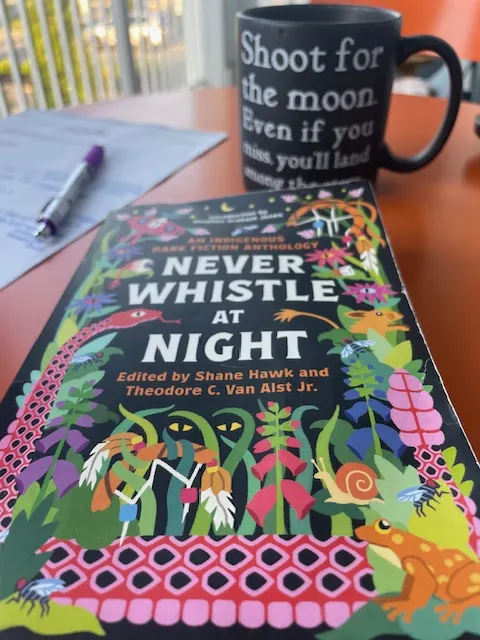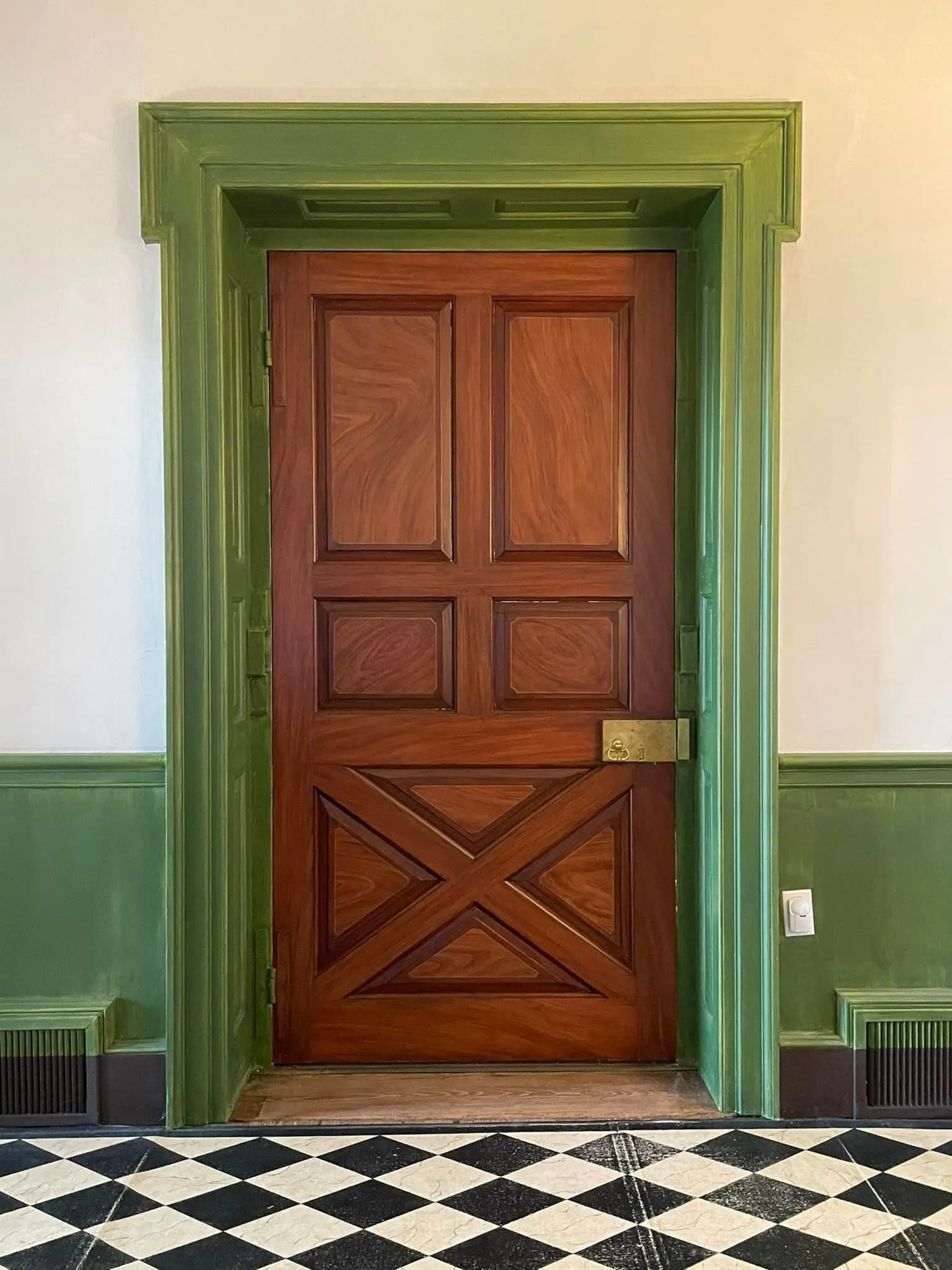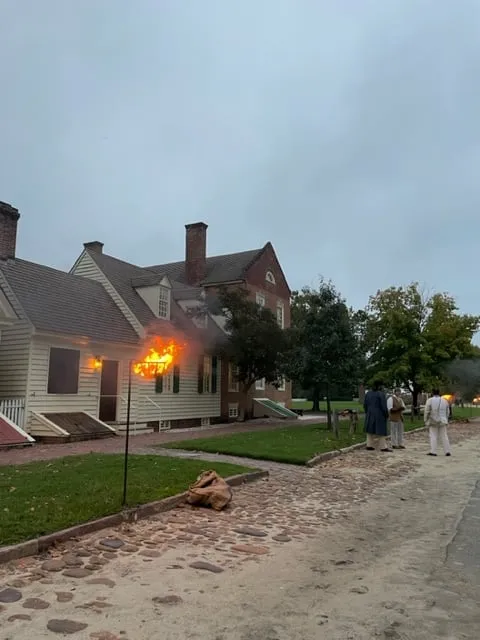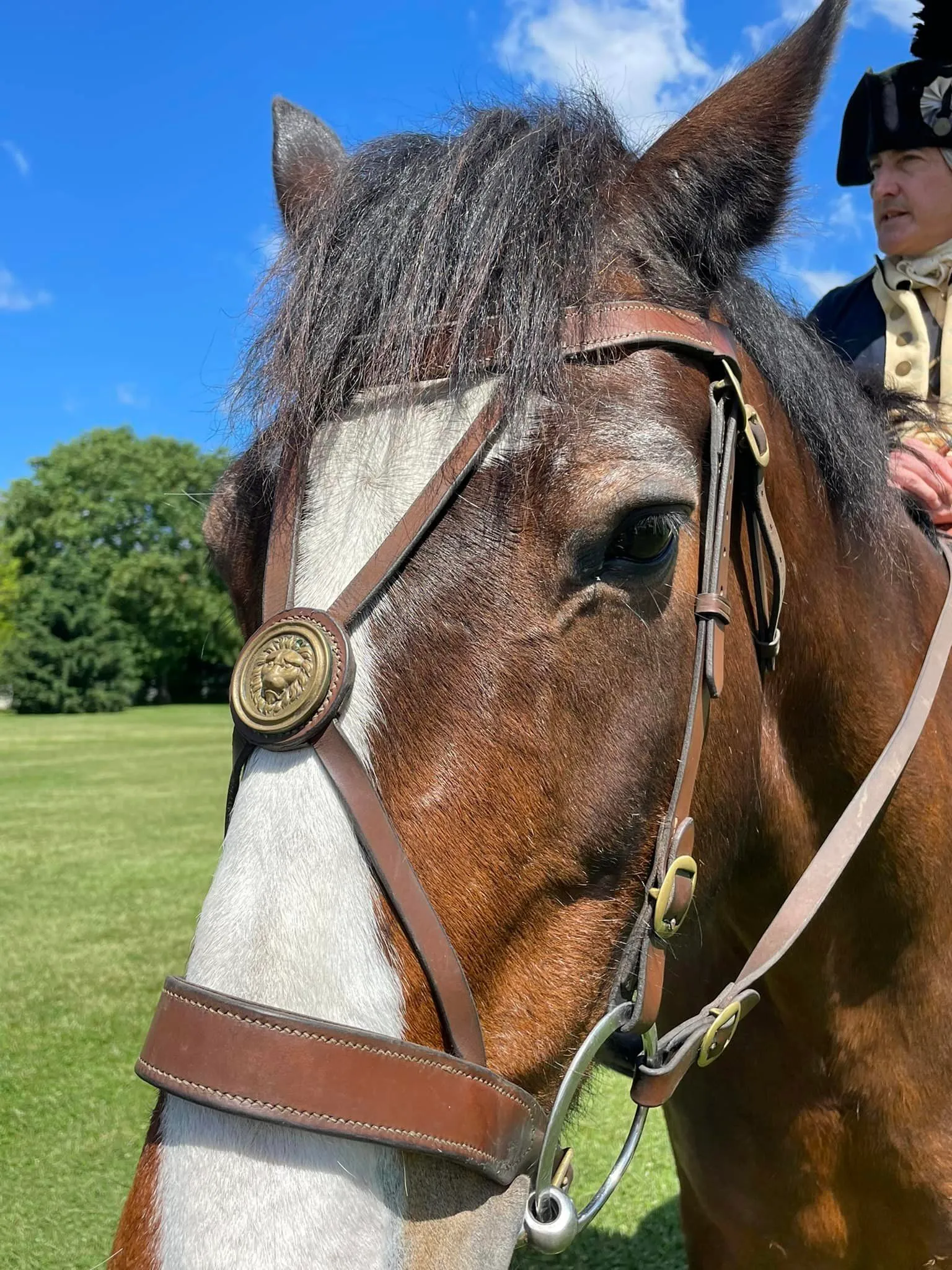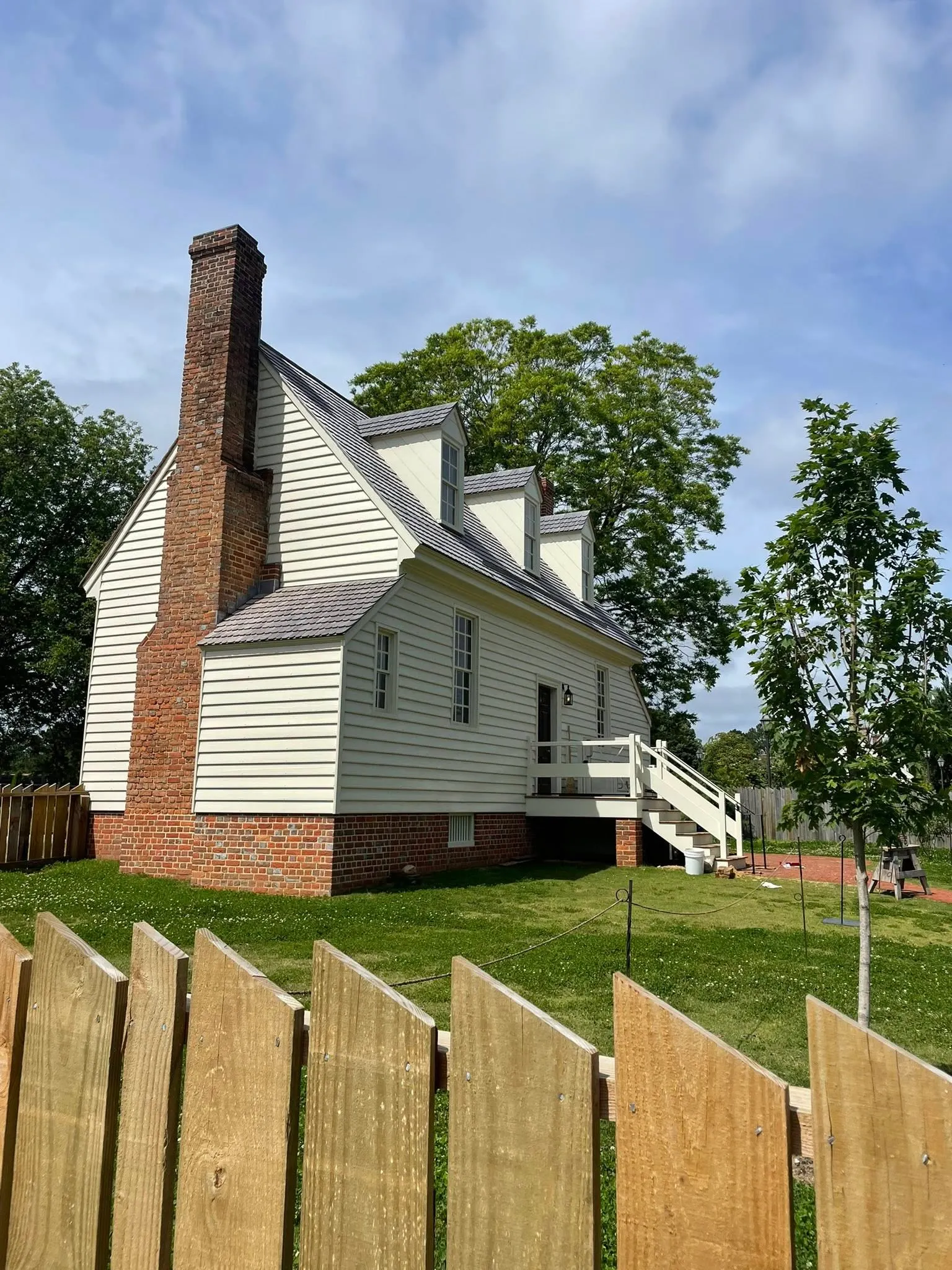Revoking History: How the 11th Earl of Dunmore Honored Patrick Henry's Legacy May 29th, 1986
Celebrating Patrick Henry's May 29th birthday.
Thanks to Richard Schumann, who has portrayed Patrick Henry in Colonial Williamsburg (CW) for almost three decades, May 29th was brought to my attention. As often happens when you wander the streets of CW, you find an historian "dressed in funny clothes" as they often joke.
On one such occasion, I found Mr. Schumann, who is passing the torch in a period of transition to Nat Lasley. He educated me about an historic moment which took place on the 250th anniversary of Henry's birthday.
This moment took place on the Courthouse steps of CW, May 29, 1986.
RELATED: Read this article about "Becoming Patrick Henry" and the two historians portraying him.
Necessary disclaimer: As a blogger, I use affiliate links sometimes! I may receive commission from purchases I share; it does not change your price but sometimes you might get a discount.
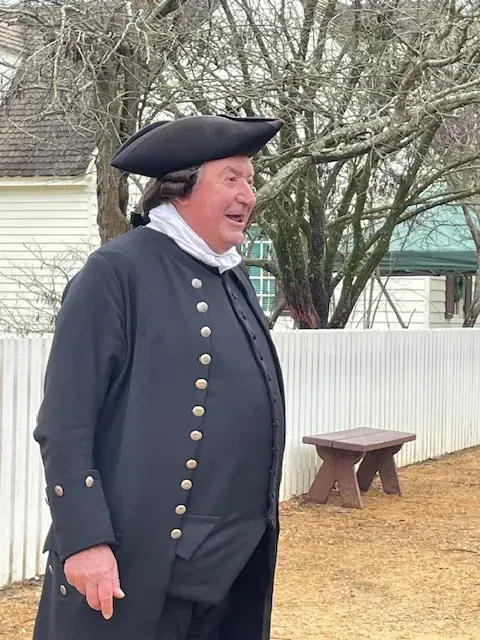
Richard Schumann portraying Henry on the streets of CW
Lord Dunmore feared Patrick Henry.
Understanding Lord Dunmore's position on Patrick Henry.
Before we discuss the 1986 event, we should first, travel back in time. Referring back to a tense era in our early American history.
Patrick Henry was well-known for his oratory skills- often referred to as "The Demosthenes of His Age" or the "Son of Thunder." In fact, you may be familiar with what's become commonly known as his "Liberty or Death" speech- am I right?
Lord Dunmore was the last Royal Governor of Virginia, replaced by the first non-Royal Governor: Patrick Henry. Dunmore was the 4th Earl of Dunmore and once he departed, Henry moved into the Governor's residence facing the Palace Green.
On the eve of the Revolution (you can argue how long this 'eve' spanned, but I'm going to the 1760s), Henry was a newly-elected member of the House of Burgesses in Virginia.
Tensions were high, as I already mentioned.
In the 1760s, the Stamp Act created confusion, anger, and fear (my words) among British citizens living here in America. Virginia's burgesses debated a response to Parliament's action, which was interpreted as 'taxation without representation.'
This has become a phrase embedded into our foundational understanding of American Independence.
As a newly-elected burgess, Henry clearly couldn't sit back (as Mr. Schumann and now Mr. Lasley often share). He introduced seven resolves, often referenced around here in CW as "getting the ball of revolution rolling."
I've already written a post on this topic, and included a transcription of the Resolves... so I won't repeat it. Click here to read it all.
ALSO RELATED: Click here for my blog post about Henry's famous speech.
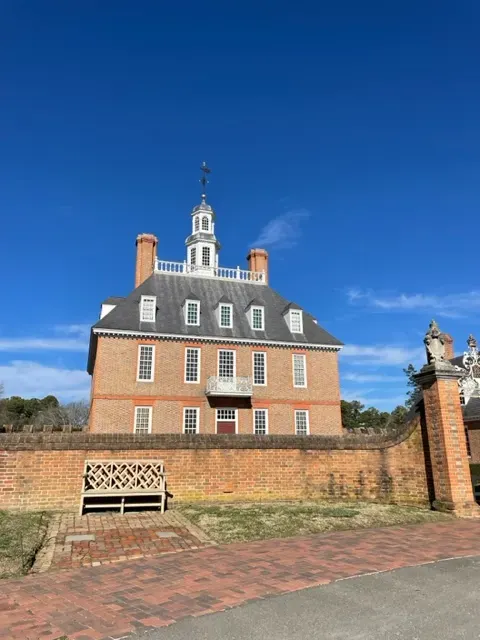
Reconstructed Governor's Palace, CW
Dunmore's Proclamation against Patrick Henry.
Patrick Henry continued to be a strong voice against the tyranny of Parliament that was often cited in the Colonies.
As tensions increased, and reconciliation with King George III seemed less and less likely, Henry's voice grew louder.
I'll break down the pivotal moments surrounding Dunmore's proclamation blogger-style. With bullet points!
- April 21, 1775: Lord Dunmore has the gunpowder held in Williamsburg seized in darkness, before dawn.
- May 2, 1775: Patrick Henry leads the militia of Hanover County on a march to Williamsburg to demand the return of the gunpowder. He pauses at Doncastle's Ordinary for rest.
- May 3-4, 1775: Carter Braxton is successful in negotiating a deal with Henry, offering and delivering payment from the government for the gunpowder.
During this tumultuous few weeks, news of what happened in Lexington and Concord in response to the Massachusetts Royal Governor's attempt to seize their gunpowder had reached Virginia.
Reacting to Henry's march, Dunmore released a Proclamation which included the following (transcribed from this scan, which you can read in full--- note the long S, written as "f")
"... WHEREFORE I have thought proper, with the Advice of his Majefty's Council, and in his Majefty's name, to iffue this my Proclamation, ftrictly charging all perfons, upon their Allegiance not to aid abet, or give Countenance to, the faid Patrick Henry, or any other Perfons concerned in fuch unwarrantable Combinations; ...."
RELATED: Click here to read about the gunpowder incident on CW's site if you want to dig deeper.
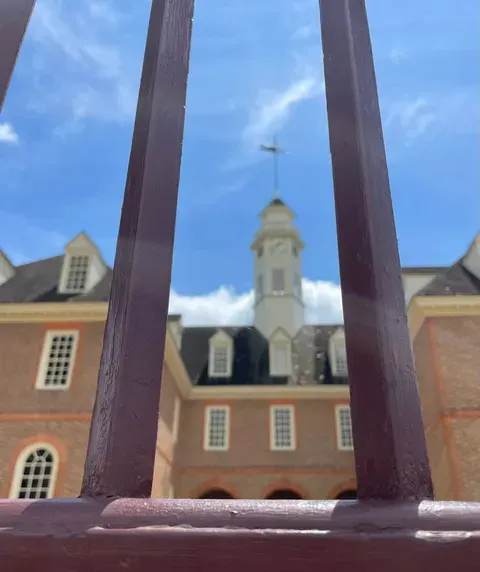
Reconstructed CW Capitol through gate, where burgesses met
The 11th Earl showed up his ancestor.
Clearly, Lord Dunmore wanted the residents of Virginia to steer clear of Patrick Henry and anyone supporting his efforts.
It may have taken 211 years, but the the 4th Earl of Dunmore's descendent, the 11th Earl, issued a Proclamation of his own! It was a revocation of his ancestor's cry against Patrick Henry.
I can only imagine the feeling I would've had, as total history nerd and lover of stories from Colonial America, hearing this "revocation" read. It happened on the original courthouse steps, directly across the reconstructed Magazine from which the 4th Earl seized the gunpowder.
What a birthday present to honor the memory of Patrick Henry on the 250th anniversary of his birth.
Thanks to the kindness of Mr. Schumann, I'm able to embed a photo of copies of both Proclamations below.
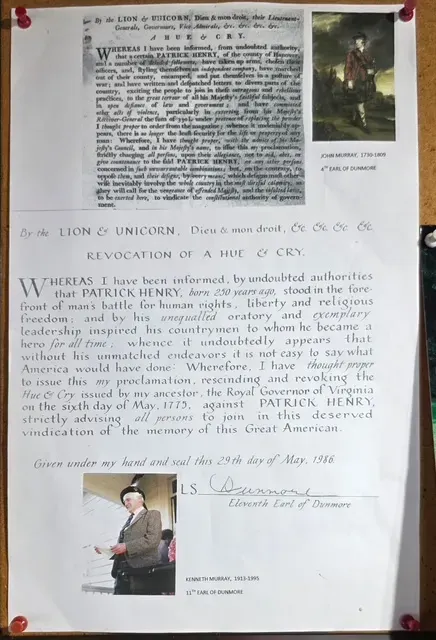
Photo credit with permission to use: Richard Schumann
How will I show my respect on May 29th in 2025?
I'm planning a visit to Patrick Henry's birthplace. While the house at Studley no longer stands, it's my understanding from Mark Couvillon's book titled "Patrick Henry's Virginia," I can get to the site if I take a dirt road. And I'm not opposed to getting a little dirty!
As far as getting to Studley, I've used the Pro Version of Explore Here to find the historical marker for Studley, which I understand to be erected on May 29, 1985- another honor to Henry on the 250th anniversary of his birth.
RELATED: Read about Couvillon's book here.
Want to find historical sites? Use Explore Here too! Click here for details.
Closing words from history.
I'll close with an excerpt from words spoken by Patrick Henry during the ratification process of our United States Constitution. His concern was the need for a Bill of Rights.
To read the speech in full, with notes and citations on Red Hill's website, click here.
June 5, 1788
"...This, Sir, is the language of democracy–that a majority of the community have a right to alter government when found to be oppressive. But how different is the genius of your new Constitution from this!
How different from the sentiments of freemen that a contemptible minority can prevent the good of the majority! If, then, gentlemen standing on this ground are come to that point, that they are willing to bind themselves and their posterity to be oppressed, I am amazed and inexpressibly astonished.
If this be the opinion of the majority, I must submit; but to me, sir, it appears perilous and destructive. I can not help thinking so. Perhaps it may be the result of my age. These may be feelings natural to a man of my years, when the American spirit has left him, and his mental powers, like the members of the body, are decayed.
If, sir, amendments are left to the twentieth, or tenth part of the people of America, your liberty is gone for ever."
-----
Are you enjoying this blog? Use my online tip jar and buy me a coffee:
There is a huge practical disclaimer to the content on this blog, which is my way of sharing my excitement and basically journaling online.
1) I am not a historian nor an expert. I will let you know I’m relaying the information as I understand and interpret it. The employees of Colonial Williamsburg base their presentations, work, and responses on historical documents and mainly primary sources.
2) I will update for accuracy as history is constant learning. If you have a question about accuracy, please ask me! I will get the answer from the best source I can find.
3) Photo credit to me, Daphne Reznik, for all photos in this post unless otherwise credited! All photos are personal photos taken in public access locations or with specific permission.
